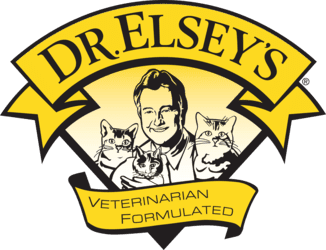
Fueling Your Feline: The Benefits of an Animal-Based Diet
As natural carnivores, cats thrive on an animal-based diet with the necessary proteins to support their unique biological needs. Unlike humans, cats require certain nutrients that are naturally found in meat and not in plant-based proteins. Feeding your feline an animal-based diet will ensure that their muscles, coat and well-being remain in good health. We’re here to share why an animal-based diet maximizes your cat’s health and how to make the best choices for their nutrition.
Natural Carnivores
Cats digestive systems are meant to process an animal-based diet. Unlike humans and other animals that have the capabilities to digest plant-based foods, cats are designed to process meat. With their short digestive tract, they aren’t able to absorb nutrients from plant-based foods in the way that herbivores can. Their canines and sharp claws are biological indicators that felines are made to hunt animals for food. Feeding your cat an animal-based diet ensures that they are able to digest and absorb essential nutrients effectively.
Nutrient Breakdown
An animal-based diet contains essential vitamins, minerals and antioxidants that are necessary for your cat’s health. Along with the lack of essential nutrients, most plant-based diets are high in oxalates — naturally present in vegetables, nuts and grains, they can lead to calcium oxalate crystals, resulting in urinary tract issues and even kidney stones. Since cats are naturally prone to urinary and kidney issues, feeding your cat an animal-based diet avoids making these health issues more prominent in your feline friend.
Felines must eat an animal-based diet because their metabolism requires arachidonic acid, preformed vitamin A and taurine — all found in animal tissue and not naturally occurring in plant-based ingredients. Essential for cats’ heart function, vision and overall health, a lack of taurine can lead to serious health issues such as heart disease and blindness. Similarly, cat’s must also have arginine, a essential amino acid, in their diet. Diets devoid of arginine are fatal to cats, and especially fatal to kittens.
Aside from providing your cat with the essential nutrients they need, animal-based diets are better for your cat’s health due to their low carbohydrate content. Cat’s digestive systems take much longer to process carbohydrates — about twelve to eighteen hours, much longer than humans. Due to this slow processing time, a cat who is consuming excess carbohydrates will experience an overworked pancreas, resulting in an increased risk for diabetes.
Cats’ digestive systems have to work harder to convert protein into energy, which helps prevent obesity and muscle loss, while also enabling fat to be metabolized and used for fuel. Cats require energy around the clock — if there isn’t enough protein in their diet, their body will break down their own muscles to get it. A mouse is around 55% protein, so diets that are even 40 to 45% protein are low in protein compared to a cat’s natural diet. cleanprotein is as close to the protein analysis of a mouse as a dry kibble can get.
Healthy Muscles, Bones & Digestion
Feeding your cat an animal-based diet will encourage strong bone development and help them maintain lean muscle mass. This will help your cat remain active and maintain a healthy weight throughout their nine lives. When you feed your cat plant-based or grain-heavy foods, they may not be able to fully digest or absorb the nutrients, leading to gastrointestinal issues such as bloating, diarrhea or constipation.
The lack of fiber and excess carbohydrates in plant-based diets can also contribute to obesity in cats, which is linked to a variety of health concerns, including diabetes and joint problems. Healthy muscles and strong bone development are especially important for kittens, pregnant or nursing felines and senior cats who have additional nutrition requirements.
How to Feed Your Cat an Animal-Based Diet
If you’re looking to switch your cat over to an animal-based diet, slowly transition them so they don’t become sick from the quick change in food source. Start by feeding your pet their usual food and replace a quarter of it with the new, animal-based food over a two week period. After two weeks, replace half of their usual food with the new food. Keep increasing the portion every two weeks until your pet is fully transitioned to the animal-based diet.
When searching for an animal-based food, be sure to check the ingredients and look for brands that list whole proteins such as chicken, fish or beef first. Dr. Elsey’s line of cleanprotein cat food and treats prioritize animal-based proteins that resemble a cat’s natural prey in order to keep your furry friend healthy and happy for years to come.
Learn more about your cat’s health and wellness over on our Instagram page!




